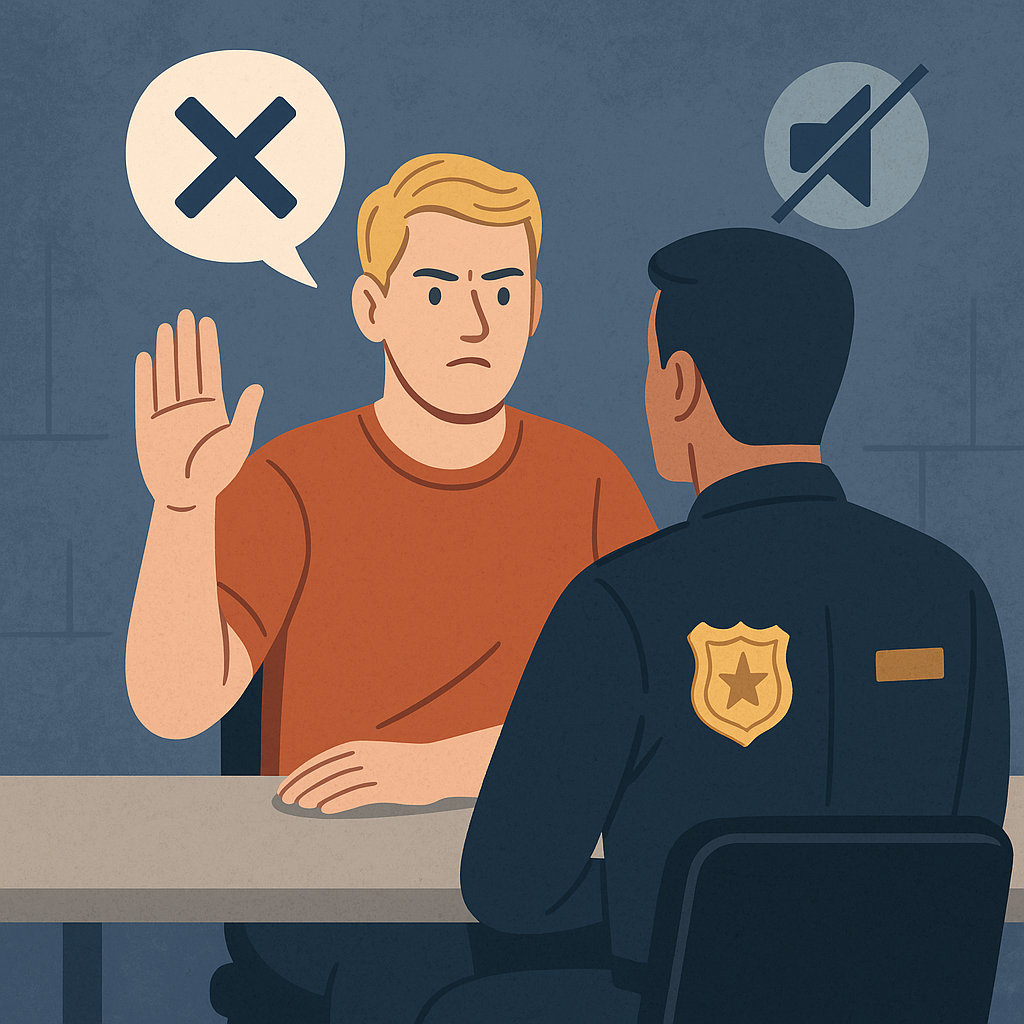Your Rights During a Utah Police Interrogation
How to properly invoke your right to remain silent and ask for an attorney
This guide explains your rights during a police interrogation in Utah, including when to remain silent, how to request an attorney, and what happens if you speak voluntarily. Police questioning can feel intense and confusing, but Utah residents have strong constitutional protections. Knowing when and how to use those rights can make all the difference in your case.
Below, we cover what officers can and cannot do during questioning, how to clearly invoke your rights, and what to do if those rights are ignored.
When Your Miranda Rights Apply in Utah
Your Miranda rights the right to remain silent and the right to an attorney apply when you are both in custody and being questioned by law enforcement. If you’re not free to leave, even if you haven’t been formally arrested, Utah law generally considers that “custody.”
Before any questioning, officers must read you your Miranda rights. If they fail to do so, anything you say could be ruled inadmissible in court. Under Utah Code § 77-7-15, officers must clearly inform you of these rights before interrogation if you’re detained or under arrest. Always listen carefully and confirm whether you’re free to go.
How to Properly Invoke Your Right to Remain Silent
Simply staying quiet isn’t always enough. Clearly state your intent to remain silent, then stop talking entirely. For example, say:
Be calm, polite, and direct. You don’t have to argue or explain why you’re staying silent just assert your right and disengage.
Your Right to an Attorney
You can request a lawyer at any time during questioning even if you’ve already started talking. The moment you say, “I want to speak with an attorney,” all questioning must stop until your lawyer is present.
Police cannot legally continue asking about the case or pressure you to keep talking. This right applies whether you can afford an attorney or not; if you can’t, the court will appoint one. If officers ignore your request and continue, your lawyer can often seek to exclude any statements made after that point.
What Happens If You Talk After Invoking Your Rights
If you start speaking again after invoking silence or asking for a lawyer, officers can resume questioning and your new statements might be used against you. That’s why it’s critical to stick to your decision once you’ve invoked.
Don’t engage in “harmless” small talk about the case. Even casual answers can later be used to fill in details or show inconsistencies. Remember, remaining silent is not an admission of guilt; it’s your legal safeguard.
When Police Can Continue or Must End Questioning
Police may continue questioning only if you haven’t invoked your rights or if you voluntarily re-initiate conversation after invoking. If you clearly say you want a lawyer or to remain silent, questioning must end until those conditions change.
Officers can keep you detained while waiting for your attorney or transport you to jail if you’ve been arrested. If you are not in custody (for example, you came voluntarily), you can leave at any time. Ask directly, “Am I free to go?” If the answer is yes, calmly leave.
What to Do If Your Rights Were Violated
If police questioned you without reading rights, ignored your request for an attorney, or continued after you invoked silence, tell your lawyer immediately. They can file a motion to suppress unlawfully obtained statements often weakening or even destroying the prosecution’s case.
- Write down time, place, who was present, and what was said.
- Do not confront officers yourself; let your attorney handle it.
- Preserve any texts, bodycam references, or booking paperwork.
Video & Social Learning Hub
YouTube: Interrogation Rights in Utah
Instagram: Quick Utah Rights Reminders
Questioned by Police? Protect Yourself.
Stay calm, stay silent, and ask for a lawyer. Utah law protects your silence and your access to counsel but you must clearly invoke those rights.
Talk to a Utah AttorneyUtah Law Explained is a legal education resource. This article provides information, not legal advice.
